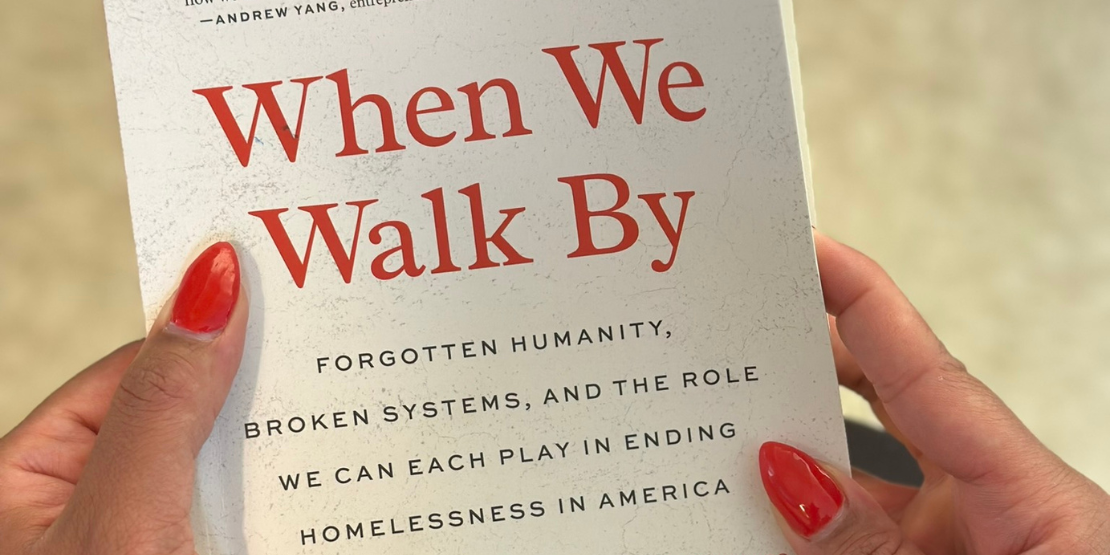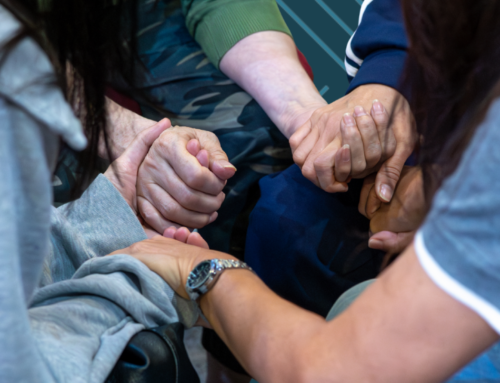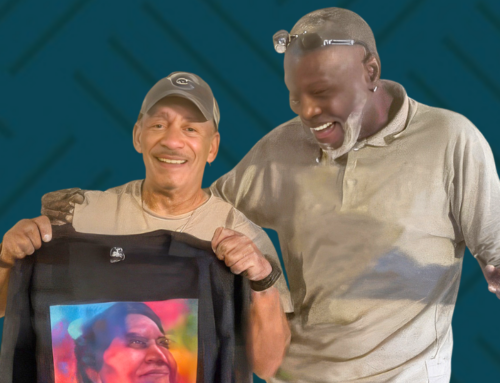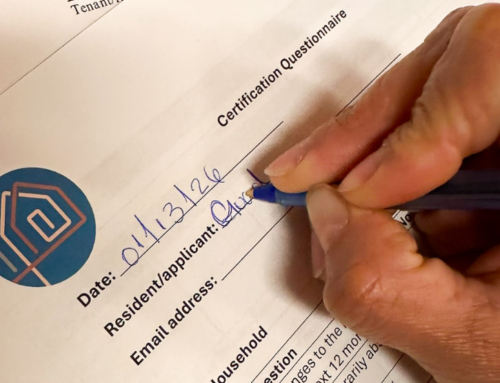Often, we delight in sharing remarkable stories of our residents at Joshua Station and Clara Brown Commons—as well as the volunteers and donors who join them in support.
This time, will you join me in a step back for a wide view? I’d like to share some ways our staff and board team are thinking about the monumental societal challenges our families face in this critical time for our city. How might we, together with you, respond effectively and meaningfully?
My book of the year for 2023 was When We Walk By: Forgotten Humanity, Broken Systems, and the Role We Can Each Play in Ending Homelessness in America. Because so many of you who partner with Mile High Ministries care deeply about people who struggle with poverty and homelessness, I do hope you will read it.
I’d also like to talk with you about it over lunch! Can you join us Wednesday, June 26? Details here.
The authors, Kevin Adler and Donald Burnes, have many years of experience loving and supporting unhoused people—as well as doing top academic work in the field. Burnes lives in Denver, giving the book a nice local connection. Adler does creative, hands-on work that grew from his own heartache at losing a loved one to the streets. These guys are distinguished experts, but the book isn’t for experts; it’s for all of us.
Adler and Burnes make a clear and compelling case that in our time, the challenge of homelessness in America is a convergence of three immense forces of struggle.

First, homelessness is a housing problem. Isn’t that stating the obvious? Maybe so. But it is common to attribute homelessness to drugs, mental illness, or just a general unwillingness to work hard enough to stay housed. The thing is: these individual, personal issues are everywhere. But the data shows that homelessness is concentrated where the cost of housing is prohibitively high. The fundamental cause of homelessness is a lack of enough housing that is accessible and affordable to people of modest means.
Second, and closely related, homelessness is a systems problem. In addition to the housing market, homelessness reflects th convergence of flaws within the health care (including mental and behavioral health), education, job market, youth and family, and criminal justice systems. Which means there is, unfortunately, no quick-fix solution.
Finally, homelessness is a relational problem. I was inspired by a visit last year to Community First! near Austin, Texas, where a church-based feeding program has grown into America’s largest master-planned community for formerly unhoused people. Alan Graham, CF!’s founder, told us, “The people who end up unhoused on the streets of my city come from all kinds of situations. But they all have one thing in common: something is profoundly broken in their most important relationships.” This is the reality of relational poverty. So very many people are isolated and struggling on their own.







